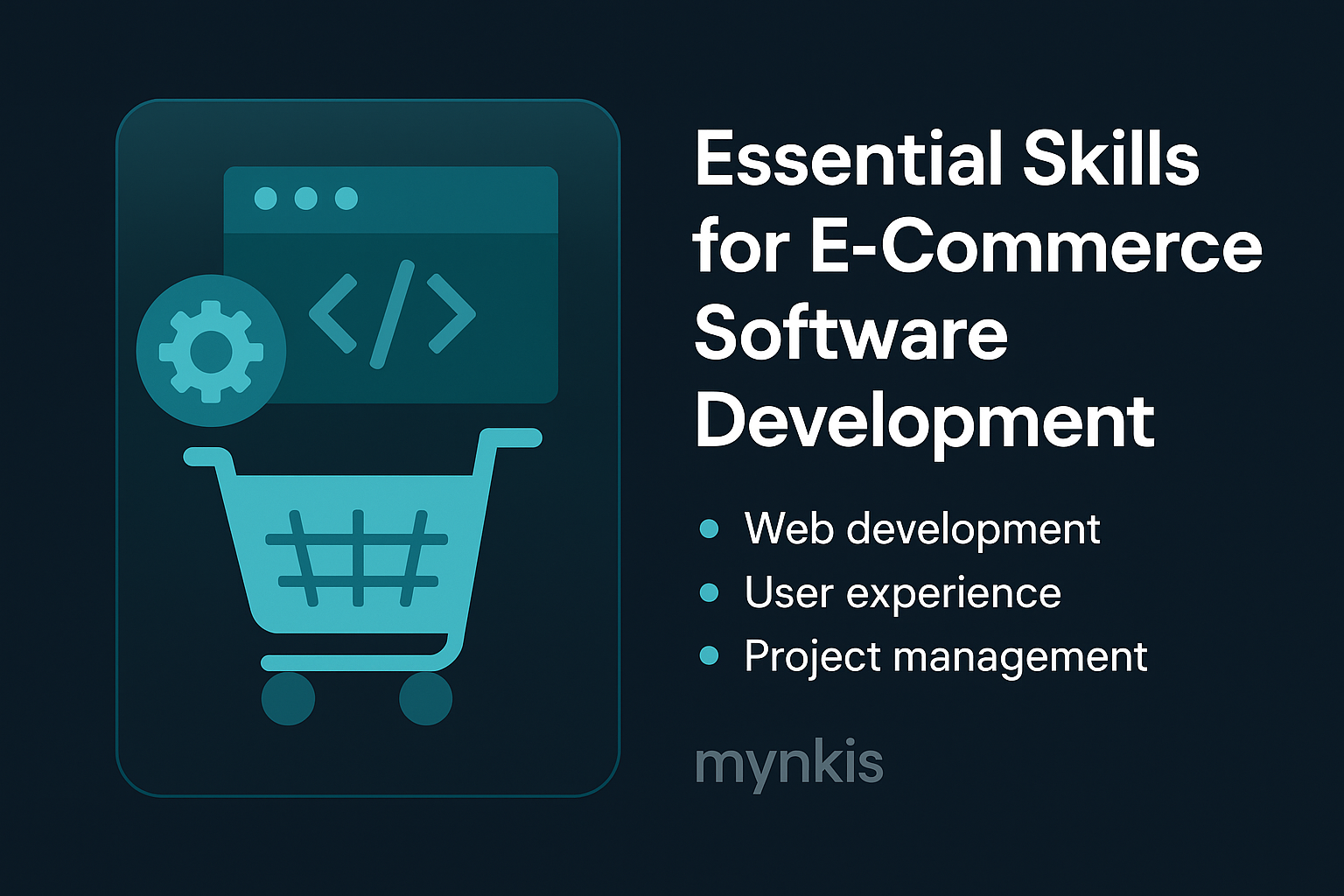Schedule a Demo
When we think about e-commerce, the magic often happens in the code behind each click and purchase. For retailers stepping into the digital space, developing a robust online store involves understanding an array of skills that go beyond traditional web design. I've witnessed firsthand how the demand for seamless shopping experiences pushes the industry to continuously evolve.
At the core of any great online store is the user experience. Developers must master the art of creating intuitive interfaces, where every button, menu, and navigation flow is crafted to enhance the shopper's journey. It's not just about aesthetics; it's about anticipation. For instance, predictive algorithms can suggest products based on browsing history, effectively engaging users without them feeling overwhelmed by choices.
In today's digital marketplace, standing out without an ad budget can be a challenge. Here's where SEO becomes a non-negotiable skill. Developers must integrate keyword optimization, meta descriptions, and alt texts not just as afterthoughts but as fundamental pieces of the platform's architecture. I've seen projects where SEO integration was tackled at the beginning, leading to remarkable long-term growth and visibility in search engine rankings.
The wealth of data generated from online stores is incredible. But to harness this power, developers need a strong grip on data analytics. This skill set allows for the tailoring of marketing strategies and the personalization of user experiences. A developer who understands how to turn data into insights can enhance user satisfaction and boost sales. According to a report from IBM, businesses leveraging data analytics have seen an increase in operational efficiency by over 15%.
Sure, desktops are still widely used, but mobile commerce has been on the rise, particularly among younger demographics. Developers skilled in creating mobile-responsive sites ensure that a retailer's online presence doesn't lose its sheen when viewed on a smaller screen. Everything from the layout to the checkout process must work seamlessly across devices, providing a uniform experience that maintains or increases conversion rates.
Let's get real—security can't be an afterthought in the realm of e-commerce. The skill to implement robust security protocols, such as SSL certificates and secure payment gateways, is a must-have. I've dealt with clients who emphasize security as their top priority; they want peace of mind knowing their customer's data is as secure as Fort Knox. Without it, trust and loyalty go out the window.
Ever visited a website that seemed to take ages to load? You're not alone, and you've probably left before making a purchase. Performance optimization is where developers can shine by ensuring fast load times and smooth page transitions. Caching strategies, image optimization, and efficient code are tools of the trade that can make all the difference in user retention and site performance.
To make an online store truly competitive, integration with external systems—be it for inventory management, CRM, or payment processing—is crucial. Developers who possess a mastery of APIs can bridge these systems effectively, streamlining operations and providing a smooth experience for both store owners and consumers. It's about creating a connected, cohesive ecosystem.
Accessibility is another non-negotiable. Developers must ensure that their online stores cater to all users, including those with disabilities. This encompasses everything from screen reader compatibility to navigational ease for those who rely on keyboard-only navigation. Based on available research, enhancing site accessibility not only broadens your market but can also improve your SEO, which I've witnessed positively impacting many e-commerce businesses.
The most effective way to engage consumers is through personalization. Developers skilled in this area can create systems that adapt content, products, and marketing to individual user behaviors and preferences. It's fascinating how tailoring the shopping experience can lead to higher satisfaction and repeat business. Implementations like dynamic content display, based on user demographics or browsing history, have proven effective in this regard.
Success often brings growth, and an e-commerce platform must be prepared to scale. Developers must approach the project with a mindset that anticipates this growth, designing systems that can handle increased traffic and complexity without missing a beat. This scalability skill is crucial for ensuring that the online store can evolve alongside the business.
In the realm of software development for e-commerce, no skill list is complete without continuous learning. The landscape changes, and developers who thrive are those who constantly update their toolkit. From emerging frameworks to the latest SEO techniques, staying ahead of the curve is not just advisable; it's necessary. I've seen how developers who embrace learning can transform a store's online presence from good to exceptional.
Finally, software development is rarely a solo act. Strong collaboration skills and an understanding of project management can ensure that a project's scope remains clear, and deadlines are met. Juggling the intricacies of an e-commerce build—from backend integrations to frontend polish—demands an organized approach and open lines of communication.
As we look forward, the essential skills for developers in the e-commerce field aren't limited to just the technical. They must blend a deep understanding of business goals with the latest tech advancements. I'm always excited to see how innovative approaches can transform retailers' online spaces into vibrant marketplaces where customers return time and again.
